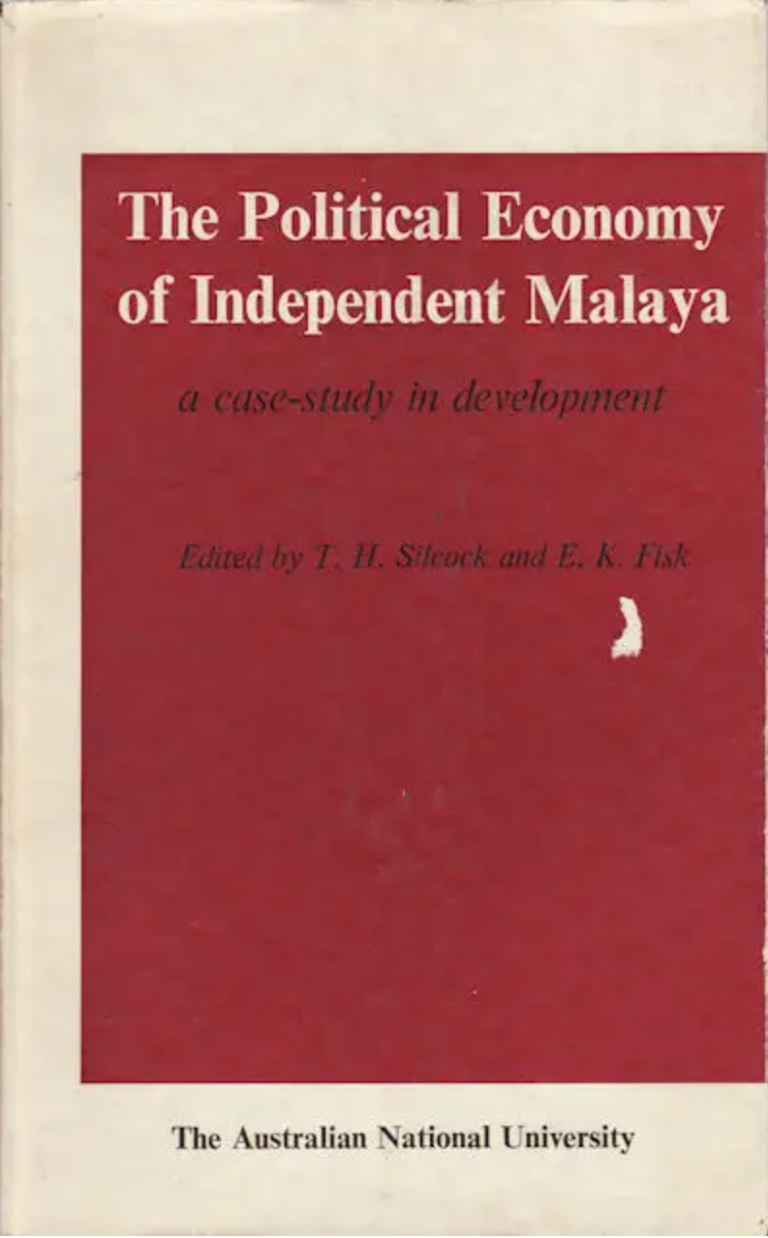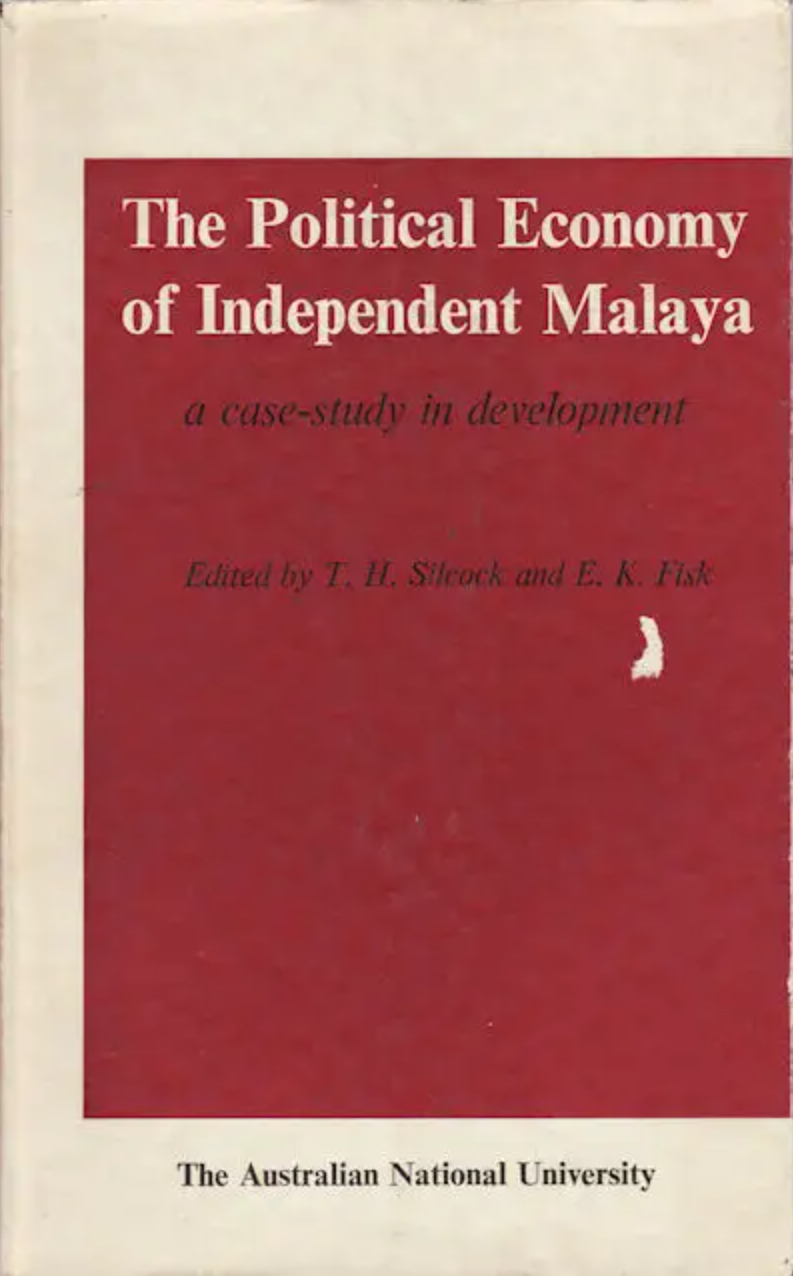T.H. Silcock and E.K. Fisk (eds), The Political Economy of Independent Malaya: A Case-Study in Development (1963)
The Menzies era corresponded with a period of rapid decolonisation across South East Asia. As European powers reluctantly withdrew, they generally left behind political vacuums and economic poverty, all of which made the fledgling independent nations of the region far more susceptible to falling under the destructive influence of communism. It was therefore a major strategic priority for Australia to help our ‘underdeveloped’ neighbours reach a level of prosperity and stability that would help immunise them from the threat of communist subversion.
One of the main countries which Australia sought to help in this fashion was Malaya. A key member of the Commonwealth, with a leadership that remained pro-Western and stoutly anti-communist, Malaya was perhaps the most important domino in our strategy of ‘forward defence’. It was for this reason that Australia committed significant military resources and ultimately ground troops to help the Malayan Government put down a series of communist disturbances known as the ‘Malayan Emergency’.
While these were useful in helping to end the emergency (indeed the military operation is still studied as a model of success), in order to ensure it never recurred, it was important for Australia to help Malaya reach a sustainable level of economic growth. For this reason, Malaya was one of the main recipients of Australian foreign aid and technical assistance under the Colombo Plan, as well as one of the main providers of university students who came to Australia to study under the Plan.
But this was only the tip of the iceberg of Australian assistance, which also involved the use of much intellectual capital in trying to solve the problems Malaya faced. One such example was an intensive research seminar, in which academics with Doctorates from universities spanning Australia, Britain, and the United States gathered at the Australian National University in an endeavour to tackle Malayan dilemmas.
They were joined by large numbers Malayan officials and students who were sponsored to travel to Australia to offer an insider’s view. This was vital because the philosophy of the seminar was that ‘the problems of Malaya should be seen from the point of view of the Malayan interest’, rather than the interests of the Australian hosts. The main editor of the subsequent publication, Dr T.H. Silcock, was an Emeritus Professor at the Malayan University, having spent two decades as Chair of Economics in Singapore – hence he likewise understood problems on the ground, rather than at a distance.
The product of their labours was The Political Economy of Independent Malaya: A Case-Study in Development. As John Crawford explains in the foreword, the hope was that Malaya could be used as a positive example to then model the economic development of other countries in our region:
‘The book fairly reflects the content of the seminar which had the dual purpose of studying problems of economic development and of examining the case of Malaya in particular. The book is likely therefore to interest at least two categories of readers.
First, it is a study of an emergent economy and of the progress made, and difficulties encountered, since the grant of full independence. As such, it is of interest to all those people throughout the world who are concerned with the problems of underdevelopment and the improvement of living standards in low-income countries. Secondly, it takes the economy of Malaya as the particular example for study, and will be for this reason of particular interest to the people of Malaya and of the neighbouring countries with whom the Malayan economy is so closely linked.’
Both the conference and the book appear remarkably modern – reflecting the efforts of Australian universities in the 21st century to foster relationships with the nations and universities of Asia. For this reason, the book serves as tangible proof that such engagement started far earlier than is often assumed.
Sign up to our newsletter
Sign up for our monthly newsletter to hear the latest news and receive information about upcoming events.



